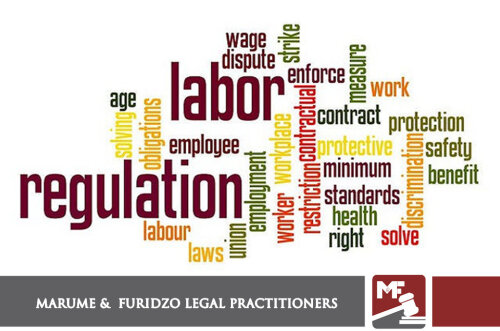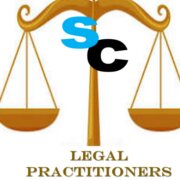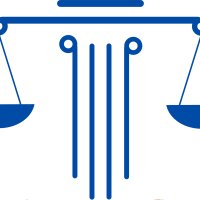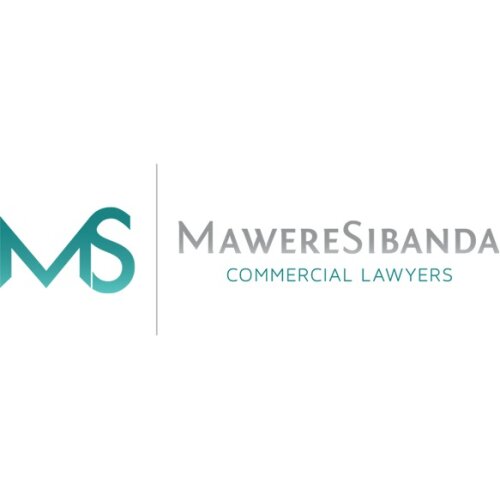Best Wrongful Termination Lawyers in Zimbabwe
Share your needs with us, get contacted by law firms.
Free. Takes 2 min.
Or refine your search by selecting a city:
List of the best lawyers in Zimbabwe
About Wrongful Termination Law in Zimbabwe
Wrongful termination, or wrongful dismissal, in Zimbabwe refers to the unlawful dismissal of an employee from their job without proper legal justification or in violation of employment laws and contracts. Zimbabwean labor laws are designed to protect employees' rights, ensuring fair treatment and due process in cases of termination. Situations constituting wrongful termination may include dismissals without cause, failure to follow contractual obligations, or breach of procedural fairness in the termination process.
Why You May Need a Lawyer
If you believe you have been wrongfully terminated from your job, consulting a lawyer can be crucial to understanding your rights and exploring available remedies. Common scenarios where individuals may require legal assistance include:
- Termination without a valid reason or contrary to the employment contract.
- Retaliatory dismissal for whistleblowing or reporting illegal activities.
- Discriminatory dismissal based on race, gender, religion, or other protected grounds.
- Dismissal without adherence to stipulated notice periods or procedures.
- Unfair retrenchment practices.
A lawyer can provide valuable guidance, assist in navigating complex legal procedures, and help you seek appropriate compensation or reinstatement in cases of wrongful termination.
Local Laws Overview
The main legal framework governing employment and wrongful termination in Zimbabwe includes the Labor Act and associated regulations. Key aspects include:
- Justified Termination: Employers must have a lawful reason for terminating an employee, such as misconduct, incompetence, or incapacity.
- Notice Requirements: Employees are generally entitled to receive a notice period or payment in lieu thereof as stipulated in their employment contract or the Labor Act.
- Fair Procedure: Employers are required to follow fair procedures, including disciplinary hearings where appropriate, before terminating employment.
- Retrenchment: There are specific procedures and conditions under which retrenchment can occur, aimed at preventing arbitrary dismissals.
- Appeals and Remedies: Employees have the right to appeal against unfair dismissals through labor courts or dispute resolution mechanisms.
Frequently Asked Questions
1. What constitutes wrongful termination in Zimbabwe?
Wrongful termination occurs when an employer dismisses an employee without a justified reason, does not follow due process, or breaches contract terms.
2. How can I prove wrongful termination?
Evidence such as employment contracts, dismissal letters, witness statements, and records of communication may support a claim of wrongful termination.
3. Can I be dismissed without notice?
Generally, dismissal without notice is permissible only in extreme cases of gross misconduct. Otherwise, notice or payment in lieu is required.
4. What is the role of the National Employment Council (NEC)?
The NEC works to establish and enforce sector-specific employment standards, including dispute resolution between employers and employees.
5. Can I be terminated while on maternity leave?
Termination during maternity leave is typically deemed unlawful unless justified by reasons unrelated to the maternity leave itself.
6. Are damages claimable for wrongful termination?
Yes, employees may seek damages or compensation for loss of earnings, emotional distress, or reinstatement, depending on the case merits.
7. What steps should be taken if retrenchment is imminent?
Employers must follow due process, including consultations and notice periods. Employees can challenge unfair procedures through the labor offices.
8. Can I challenge a verbal dismissal?
Yes, verbal dismissals are considered illegal unless subsequently confirmed in writing. They can be disputed through labor authorities.
9. Is representation necessary in labor courts?
While not mandatory, having legal representation is advisable to navigate legal complexities and effectively present your case.
10. How long does it take to resolve a wrongful termination case?
The duration varies depending on case complexity, but many cases might take several months due to procedural requirements and court schedules.
Additional Resources
For further assistance, individuals can reach out to the following resources:
- Zimbabwe Ministry of Labour and Social Welfare
- National Employment Councils relevant to specific industries
- Zimbabwe Congress of Trade Unions (ZCTU)
- International Labour Organization (ILO) within Zimbabwe
- Legal aid clinics and non-governmental organizations
Next Steps
If you suspect wrongful termination, consider taking the following steps:
- Gather all relevant documents such as employment contracts, pay slips, and correspondence related to your dismissal.
- Consult a qualified labor lawyer who specializes in employment law for legal advice and assessment of your case.
- File a formal complaint or dispute with the relevant labor office or National Employment Council in your industry.
- Consider mediation or arbitration if available as a quicker resolution mechanism before approaching the labor court.
- Follow legal advice and court guidelines while presenting your case to ensure compliance with procedural rules.
Engaging with these steps can help protect your rights and enhance your chances of a favorable outcome.
Lawzana helps you find the best lawyers and law firms in Zimbabwe through a curated and pre-screened list of qualified legal professionals. Our platform offers rankings and detailed profiles of attorneys and law firms, allowing you to compare based on practice areas, including Wrongful Termination, experience, and client feedback.
Each profile includes a description of the firm's areas of practice, client reviews, team members and partners, year of establishment, spoken languages, office locations, contact information, social media presence, and any published articles or resources. Most firms on our platform speak English and are experienced in both local and international legal matters.
Get a quote from top-rated law firms in Zimbabwe — quickly, securely, and without unnecessary hassle.
Disclaimer:
The information provided on this page is for general informational purposes only and does not constitute legal advice. While we strive to ensure the accuracy and relevance of the content, legal information may change over time, and interpretations of the law can vary. You should always consult with a qualified legal professional for advice specific to your situation.
We disclaim all liability for actions taken or not taken based on the content of this page. If you believe any information is incorrect or outdated, please contact us, and we will review and update it where appropriate.
Browse wrongful termination law firms by city in Zimbabwe
Refine your search by selecting a city.
















